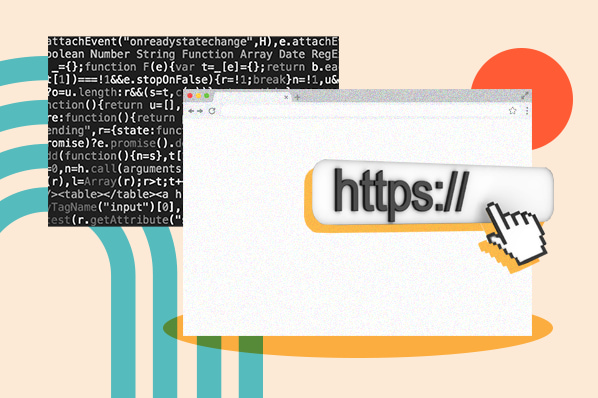Hiring web developers for your business is no easy task. Developers literally make or break your website, so the right team is central to online success. Recruiting sites and professional networks certainly help with the process. But in the end, the choice is always yours.

So, in this post, I’ll cover what a full stack developer is, how one (or more) can benefit the website development side of things, and how to go about finding one.
What is a full stack developer?
A full stack developer is one who works on the front end (the interface) and back end (the inner workings) of a website or web application. Full stack developers possess a comprehensive understanding of the technologies that make up a web-based system. They can help effectively plan, execute, and troubleshoot web-based projects with their extensive knowledge.
To better understand what a full stack developer actually does, let’s first cover what goes into creating the front end and back end of a website separately.
What Does a Front End Developer Do?
A front end developer works on the “front end” of a website or application. The front end is the part of your website or app that users see and engage with. Through your front end, your visitors can absorb information, interact with page elements, and submit their information to you. Front end developers make this all possible.
To build the front end, most developers use these three languages:
- HTML contains and organizes all the content of a web page, including text, images, links, buttons, and a lot more. You’ve probably heard of this one — every page on the web uses it.
- CSS determines how web pages look, from colors to fonts to entire page layouts. CSS interacts closely with HTML to make visually-appealing sites.
- JavaScript enables the more interactive features of websites. You can build a passable site with HTML and CSS alone, but if you want to add anything beyond static content, you’ll need to use JavaScript.
These languages run in the user’s web browser, so they are referred to as “client-side” languages. Front end developers (and full stack developers) have deep knowledge of these. They might also have a background user experience design, graphic design, and/or other specialties that support an engaging front end.
Technically, you only need HTML, CSS, and JavaScript to make a basic functional website. However, websites that implement more complex tasks require functionality behind the scenes.
What Does a Back End Developer Do?
A back end developer is responsible for the parts of a website that visitors don’t see — this is called the “back end.” Back end developers write code that runs on the web server to handle functions like storing and delivering content, communicating with other apps via APIs, and other important tasks that the users don’t need to see.
Back end developers specialize in one or more server-side programming languages, such as PHP, Python, or Java (not to be confused with JavaScript, a client-side language). Additionally, these developers may create and manage databases to store all the website’s information. Doing this requires knowledge of a specialized database language, the most popular ones being SQL and MongoDB.
Many websites, including those using content management systems, combine client-side languages with at least one primary server-side language in order to work. For example, WordPress websites run on PHP and store information in SQL databases. WordPress developers specialize in these two languages.
What Does a Full Stack Developer Do?
A full stack developer is a hybrid of the front end and back end developer roles. They contribute to all aspects of the web development process, from creating interaction methods to programming the server-side functions. All full stack developers are well-versed in the client-side languages (HTML, CSS, and JavaScript) and at least one server-side programming language.
A “stack” is a group of technologies that each handle different functionalities (e.g., the interface, data storage, server configuration, etc.) on the same website or application. So, we say that developers who can program both frontend and backend technologies know the “full stack.”
Full stack developers aren’t experts in every web-based technology — there’s just too many. Instead, they tend to focus on one specific type of common stack. For example, a full stack developer might specialize in the popular LAMP stack model, which consists of four items:
- Linux, an operating system.
- Apache, a software for running web servers.
- MySQL, a database management system.
- PHP/Python/Pearl, all server-side languages that send information between the web browser and web server.
This particular full stack developer can code in all the languages within LAMP, as well as the front end languages that go with it. They’ll also understand other stacks, even if they’re not fluent in their languages.
A full stack developer can be a tremendous asset to a web development team. Their all-around knowledge helps them optimize performance, catch issues before they occur, and help team members to understand different parts of your web service with their technical communication skills. Their abilities and knowledge tie the whole operation together.
How to Find & Work With a Full Stack Developer
Full stack developers work for years across different jobs to hone the diverse set of skills required for this demanding role. This makes them highly sought-after in the tech space.
If you believe your team needs a full stack developer, you can begin your search on LinkedIn and Glassdoor, but you’ll likely also benefit from reputable tech-specific recruiting platforms. These will limit your search to only the best candidates. Try freelance matching sites like Toptal and Scalable Path, or developer resource sites like Remote Tech Jobs.
As I mentioned, full stack developers typically specialize in a particular tech stack and at least one server-side programming language (in addition to HTML, CSS, and JavaScript). Be sure to include which stack and languages your site uses in your job listing in order to attract the right developers for your specific needs.
Also, full stack developers usually don’t code entire websites themselves, even if they have the knowledge. At most companies, a full stack developer will focus mainly on front end development or back end development, and can lend help in other areas if requested.
That said, full stack developers might handle the entire website build in smaller organizations. This is often the case in startups, which lack the resources to recruit a large software team. Specify if this is the case for your open position.
In addition to their development knowledge, a full stack developer may have built out skills in other areas including project management and design. This gives them an even broader view of the website creation process, and might further aid your team based on your needs.
A Changing Tech Landscape
Here’s one more reason to consider hiring a full stack developer: Web technologies are continuously evolving, which means that your website’s structure will also likely change sometime in the future. We’re reaching the point where frontend and backend technologies are becoming more entwined, so it’s increasingly important to hire programmers with a solid understanding of the entire tech stack.
Full stack developers see how the pieces of the puzzle fit together, and can quickly adapt to new technologies that improve how we experience the web. Finding the perfect full stack fit can be a challenge, but they’ll help keep your online presence optimized and relevant.

![Blog - Website Redesign Workbook Guide [List-Based]](https://no-cache.hubspot.com/cta/default/53/4b5bb572-5d0e-45b8-8115-f79e2adc966b.png)



![How to Build & Run an Effective Website With a Small Team or Budget [Startup Tips]](https://blog.hubspot.com/hubfs/website-on-a-budget.jpg)



![How to Make a Website With User Accounts and Profiles [With WordPress, Wix, and More]](https://blog.hubspot.com/hubfs/how-to-create-user-accounts-and-profiles.jpeg)

